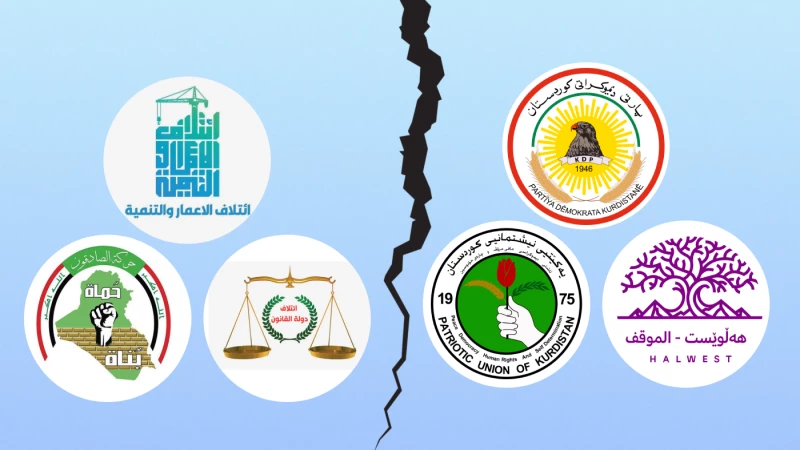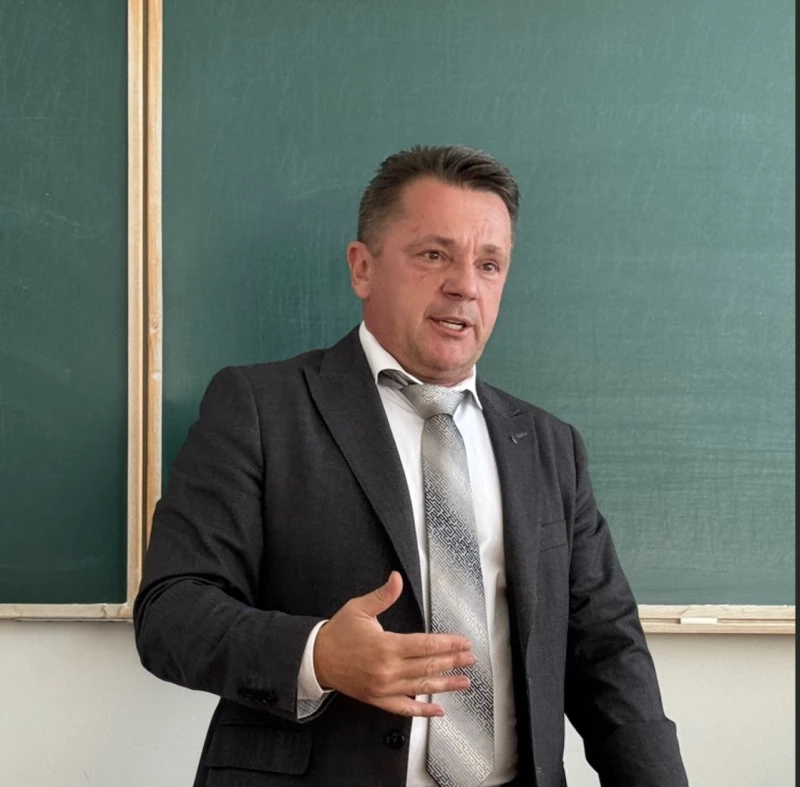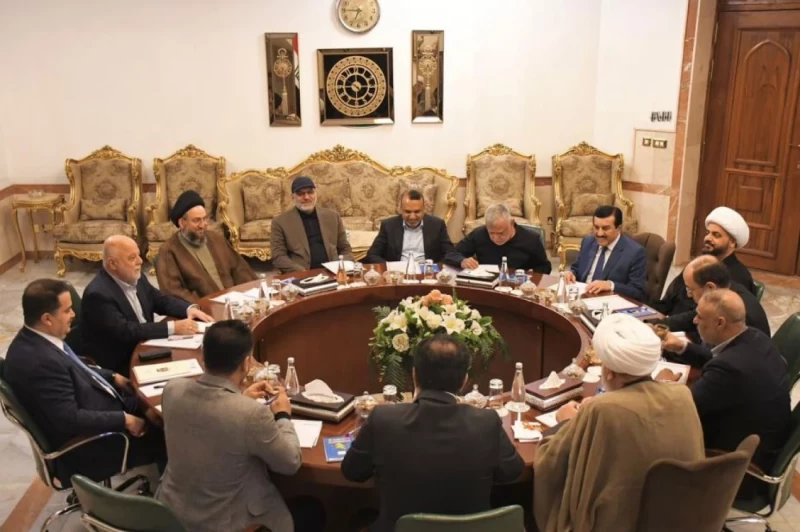Iraqi Prime Minister Mohammed Shia al-Sudani has made it over half of his term. With elections looming on the horizon next year, his tenure is under increased scrutiny.
His ascension to power followed a year of political turmoil and deadlock.
Initially, his government presented an ambitious program, accompanied by promises of comprehensive reforms and the advancement of Iraq.
However, the ensuing year and a half has been marked by a series of failures, casting doubt on the sustainability of this government in Iraq's future.
Glance at the government program
A cursory examination of the government program reveals a set of prioritized objectives encompassing a wide spectrum of socio-economic and political issues. These include the ambitious goals of combating corruption, addressing the longstanding unemployment dilemma, and providing support to the population's poor, vulnerable, and low-income segments.
Additionally, the program aimed at comprehensive reforms in the economic, financial, agricultural, industrial, and banking sectors, focusing on nurturing the private sector's growth.
A key facet of the government's agenda was the commitment to resolving critical challenges such as the electricity crisis and the housing shortage.
The cabinet pledged to implement robust anti-corruption measures, foster agricultural development, boost Iraqi trade, introduce the Iraqi industrial sector to the global market, and expand the oil industry through collaborations with renowned international companies.
These promises painted a picture of an administration dedicated to ushering in transformative changes for the betterment of the Iraqi economy.
The government’s program also dedicated an entire section to human rights, vowing to elevate Iraqi standards to align with international conventions.
Notably, it emphasized Iraq's role as a regional pioneer in creating stability. It promised to terminate the military activities of illegal militias and enhance the capabilities of the Iraqi military forces.
On the diplomatic front, promises were made to improve the relationship between Baghdad and Erbil, with the commitment to devising and implementing a comprehensive plan to address longstanding issues between the two entities.
However, a critical evaluation suggests that Sudani's government has fallen short of realizing these lofty promises. Instead, there is evidence of regression in multiple facets of the country's affairs.
Here is an analysis of the factors contributing to Sudani's failures, shedding light on the challenges that indicate his government's limited ability to endure over the long term.
Economy, Investment, and Infrastructures
Despite an ambitious plan for economic development and infrastructure enhancement, the government's efforts have fallen short, casting a shadow over the progress of key sectors.
A recent setback includes the withdrawal of British oil and gas giant Shell from the $11-billion Nibras petrochemical project in Basra, once touted as the largest venture of its kind in the Middle East.
This departure follows in the footsteps of ExxonMobil, which also abandoned its projects in Iraq.
Compounding these challenges, TotalEnergies delay in launching its $25 billion project, intended to develop Iraq's gas sector for electricity production and other purposes, highlights the strained relationships between the government and major international players.
Total’s withdrawal, occurring just months into the new government's term, reflects uncertainties and disagreements about Iraq's future stability.
Moreover, previously negotiated agreements with neighboring countries—Jordan, Egypt, Saudi Arabia, and other Gulf States—to interconnect electricity grids for increased power supply have been left in limbo.
The prior government's initiatives to import gas from Turkmenistan via Iran to bolster Iraq's electricity production have also been halted.
As Western companies withdraw from Iraq, there's a noticeable uptick in the influence of Chinese and Russian firms entering the scene.
This shift not only disrupts the economic landscape but also raises concerns about Iraq's geopolitical positioning, potentially steering it away from balancing alliances with all global actors.
The consequences of this realignment could significantly impact Iraq's relationships with traditional partners, creating a potential geopolitical imbalance.
Within the realm of housing and vital services, a series of ambitious initiatives have encountered substantial obstacles, leading to the suspension or complete cancellation of several mega plans.
One such project affected is the Dari initiative, designed to allocate land to Iraqis in need of housing. Regrettably, this promising endeavor has been halted, leaving those without homes in continued uncertainty.
Another notable setback is observed in the educational sector, specifically the ambitious plan to construct 1000 schools.
Despite an initial progress of up to 30%, the project has faced significant slowdowns and, in some areas, has come to a complete standstill.
The repercussions of this stagnation extend beyond immediate educational needs, impacting the broader societal development and advancement that these schools were intended to catalyze.
Power dynamics
Sadr's departure from the government and the systematic marginalization of traditional Sunni and Kurdish partners marks a significant departure from Iraq's power balance.
This deliberate shift disrupts the longstanding balance that has shaped Iraqi politics for years, raising concerns about the government's legitimacy, particularly in representing a diverse population with varied ethno-religious and political backgrounds.
What was once a government striving for inclusivity now appears to be under the influence of specific groups, often associated with militias engaged in illegal activities.
These activities, including attacks on diplomatic and military bases, not only jeopardize Iraq's internal stability but also strain its relationships with global partners, particularly in the joint efforts against the Islamic State.
This stark contrast to the government's initial promises to steer away from divisive policies and curb militia activities underscores a troubling deviation from the envisioned path of making Iraq a regional pioneer.
Corruption
In tandem with the shifting power dynamics toward small political groups, mostly linked to militias, the government's conspicuous silence on the escalating corruption activities perpetrated by key figures and influential militias has raised serious concerns.
Notably, the high-profile case known as the "heist of the century," which saw leading actors arrested by the previous government, witnessed an abrupt closure under the current administration.
The investigation failed to trace other influential entities involved, including the Badr Organization and various political and military groups with a stronghold in the current government.
Astonishingly, Nour Zuhair, the main suspect, was promptly released following the new government's assumption of power.
Adding to the complexity, the Federal Commission of Integrity, once a bastion of anti-corruption efforts, now operates under the influence of the Badr Organization.
The appointment of Judge Haydar Hanoun Zayer, a former candidate on Badr's list and a close associate of Hadi Ameri, as the committee's head underscores the extent of politicization within the institution.
This politicization has resulted in a selective approach, targeting only political rivals while overlooking the primary suspects implicated in corruption scandals that plague Iraq.
The compromise in accountability mechanisms severely challenges the government's commitment to combating corruption and fostering transparency.
Adding to the growing concerns, the erosion of justice is evident in the release of individuals implicated in corruption and special crimes, many of whom were apprehended and tried by the previous government.
This includes figures like the convicted killer of Husham al-Hashemi, Baha Abdul Hussein with a 6 billion corruption case, and more than 30 others. Despite facing trial and serving sentences, these individuals have been set free under the current government's watch.
Such actions not only undermine the judicial processes initiated by the prior administration but also raise questions about the commitment to accountability and the rule of law in Iraq.
The release of convicted criminals contributes to an atmosphere of impunity, threatening the foundations of a just and transparent legal system.
Human rights and freedom of press
In a distressing turn of events this week, the Iraqi judiciary sentenced Hadi al-Salami, an independent representative in the Iraqi parliament, to six-month imprisonment.
The charges stemmed from a defamation lawsuit tied to his scrutiny of the "food basket" monthly distribution to Iraqis.
Despite having parliamentary immunity and actively fulfilling his role in monitoring government activities and uncovering illicit practices, Salami found himself facing legal consequences for his outspoken stance.
The Karkh appeal court on Thursday decided to release Salami and waive the charges against him.
However, equally alarming, Iraqi blogger Yasser al-Jaboori was recently arrested for his social media activities.
While he has been released, authorities have illegally retained his documents, restricting his freedom to leave the country.
These instances represent just a fraction of a broader pattern of suppressing activists, journalists, and political opponents, reflecting a concerning trend in Iraq.
Adding to these concerns, the prime minister's media office has fallen under the influence of individuals affiliated with militias, exemplified by figures like Rabi Nader, the former head of News Room at Asaib Ahl al-Haq's Al-Ahd TV.
This media office has actively stifled dissent, resorting to tactics such as bribery and threats to silence journalists and bloggers and prevent the dissemination of criticism against the government.
This erosion of freedom of expression raises serious questions about the state of democracy and civil liberties in Iraq.
Against the backdrop of a deeply troubling environment, it becomes increasingly evident that the current government is poised to confront substantial challenges both within its borders and with the regional and international actors in Iraq.
The cumulative impact of internal shortcomings, ranging from economic setbacks to the erosion of justice and freedom, sets the stage for a potential power shift, if not an outright crisis, in the foreseeable future.

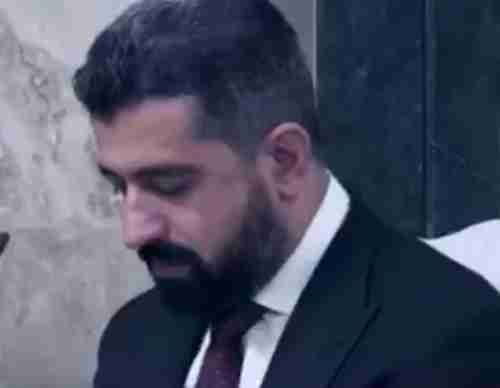
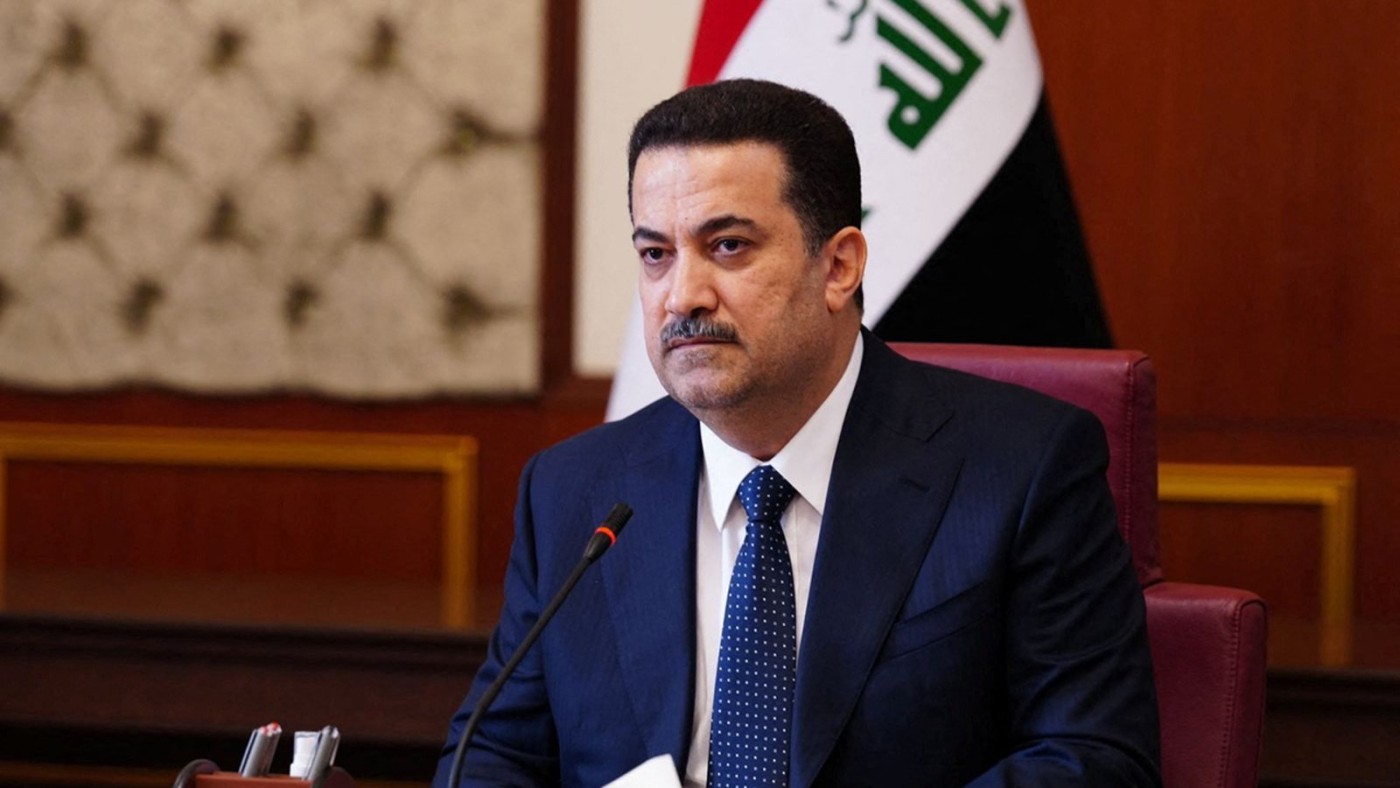
 Facebook
Facebook
 LinkedIn
LinkedIn
 Telegram
Telegram
 X
X
